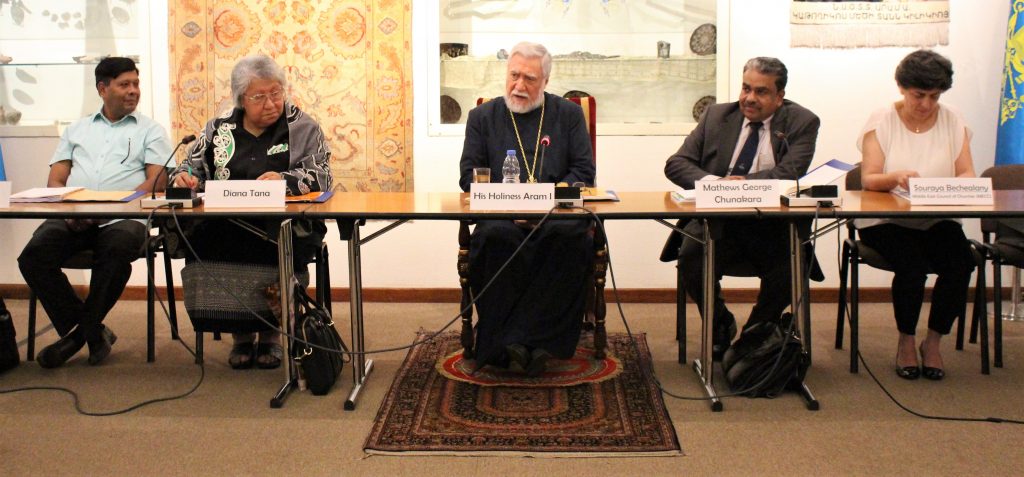CCA Executive Committee Opens with Calls for a Wider and Contextual Ecumenism

Ecumenism tells us that we cannot live in isolation and that we should engage in existential dialogue; "for Jesus Christ, for the Church, there are no boundaries, so for ecumenism there shouldn't be any boundaries," said His Holiness Aram I, the Catholicos of the Armenian Apostolic Church, Holy See of Cilicia, in a special session at the opening of the Executive Committee of the Christian Conference of Asia (CCA), being held in Antelias, Lebanon.
The veteran ecumenical leader passionately expatiated that ecumenism is not organising meetings or dealing with programmes; ecumenism in the real sense is being responsive to the message of our Lord Jesus Christ and translating that message in our local realities.
"Ecumenism is a way by which we articulate our gospel barriers, opening up to others, knowing that they are next to us," the Catholicos said.
"Creating an interaction between the local and the global - that is the purpose of ecumenism. Contextual ecumenism is what we need; we have to be in meaningful dialogue with our context. Ecumenism means a serious and strong commitment, but what we experience today is non-committal ecumenism," the former moderator of the World Council of Churches observed.
"Although organised ecumenism started as an individual initiative after the Second World War, today there is a shift from church-centred to people-centred ecumenism."
Looking at the challenges ecumenism face, the Armenian Catholicos of Cilicia said: "There is a move away from fellowship to activism, from defensive to critical ecumenism, from global to confessional ecumenism."
"Our ecumenism is not the same as that of Western society since we in Asia are living with people of other major faiths," HH Aram I noted.
"Interfaith dialogue is a part of our daily life in Asia. These are God-given diversities, so we need to respect and accept the other. Wider ecumenism means opening to others and that is the quality of being Christian. We are not paying enough attention to praying together," HH Aram I noted.
The Middle East Council of Churches (MECC) General Secretary Dr. Souraya Bechealany extended greetings. Welcoming the CCA to Lebanon, she hoped the future will bring many more opportunities for CCA and MECC to work together.
The Director of the Centre for Inter-religious Dialogue, Islamic Republic of Iran (CIRD-IRI), Dr Mohammed Mehdi Taskhiri, and its Secretary, Dr. Ms. Rashid Begi, also extended greetings. Dr Mohammed said that the Centre was in dialogue with different churches and ecumenical organisations in the world as dialogue partners and he hoped that CIRD-IRI would be able to work with CCA in the future.
In his introductory remarks, the CCA General Secretary Dr. Mathews George Chunakara stated that this Executive Committee meeting was a historic event as it was the first time the CCA was meeting outside its so-called boundaries.
Rev. Diana Tana, Vice Moderator of CCA, chaired the session.
The CCA Executive Committee is being hosted by the Armenian Orthodox Church in Iran, a CCA member church from the West Asia region, which is part of the Armenian Orthodox Church, Holy See of Cilicia, with headquarters in Antelias, Lebanon.










